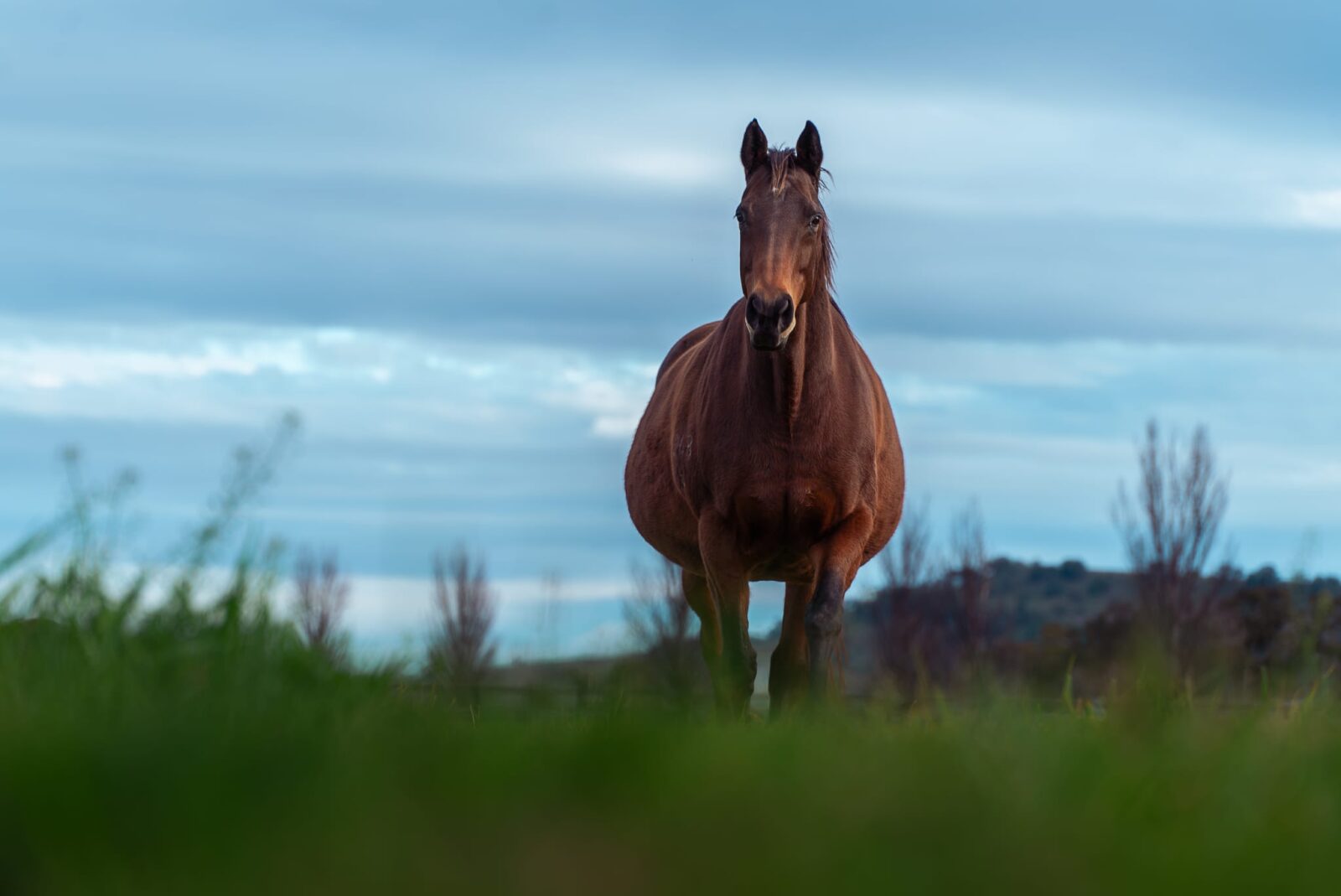Real time tracking of on-farm fatalities and injuries across Australia now available

 THOROUGHBRED HORSES / Wednesday, 7 August 2024
THOROUGHBRED HORSES / Wednesday, 7 August 2024 
A ground-breaking project led by Dr Gary Muscatello at The University of Sydney has paved the way for a novel potential management strategy to combat Rhodococcus equi pneumonia in foals, commonly known as ‘rattles’.
The strategy uses a group of naturally occurring viruses that target the bacteria that cause the disease. Given the recent emergence of multidrug-resistant strains of R. equi in the United States and Ireland, the need for alternative disease-management solutions is crucial to prolonging the effectiveness of current antibiotic treatments in infected foals.
Bacteriophages, commonly known as ‘phages’, are a group of naturally occurring viruses that infect bacteria without causing off-target impacts. Bacteriophages bind to the surface of a bacterial cell and ‘inject’ their genetic material into the cell. If conditions warrant, they hijack the cell for their own replication, leaving the cell unable to replicate and subsequently killing it.
Phages are highly selective in the bacterial strains they attack, limiting potential off-target impacts and reducing the risk of the bacteria developing resistance.
The therapeutic use of phages to treat bacterial infections is not new. Classically, phages were used, most notably in Russia during the early-to-mid-1900s, before the widespread adoption of antibiotics. Due to the success of penicillin, interest in, and further study and use of, phage therapy dropped off the radar in the West, but the strategy is again attracting attention as a way to treat multidrug-resistant bacteria, including R. equi.
Preliminary results show potential for phage therapy
The results of this laboratory-based study indicate bacteriophages can suppress virulent R. equi growth in soil and foal faeces, which could potentially enable stud managers to better manage environmental burdens and foal gut burdens more effectively.
According to Gary, environmental mitigation with phages could be more sustainable than other measures, such as irrigation, given the potential limitation of water resources due to climate change.
“If applied during the early stages of the foaling season to keep bacterial concentrations low in areas of the farm where there are susceptible foals and high traffic, the magnitude of exposure may be dampened significantly enough to reduce the risk of airborne exposure and lung infections,” he explained.
Gary and his team believe the resulting cost savings through reduced clinical cases requiring antibiotic treatment and increased foal survival could potentially be worth millions of dollars. The benefits could also enhance the quality of the foal crop annually.
Extending the findings to the field is the next step
While the results of this laboratory-based study show the potential of phages, field trials are the next step in evaluating the on-farm efficacy of a phage-based approach for mitigating the risk of rattles.
“The associations we have made between R. equi detection and phages enable researchers to tailor futures searches for new phages in the field,” Gary said.
“Partnering with phage biotechnology and pharmaceutical companies would greatly improve the potential to implement phage treatments on farm.”
Safety and efficacy trials will also be vital to ensure phage treatments are safe and have no deleterious effects on farm environments or in foals.
“The specificity of phages to their host should mean other bacteria within the foal and the immediate environment are not affected, but the ultimate effect of phages to suppress R. equi gut proliferation and faecal shedding needs to be fully explored,” Gary said.
“This is important not only with respect to the gut microbiota but also the foal’s gut immune response to the disease-causing bacteria, and how these factors could influence an individual foal’s susceptibility to rattles.”
Gary said the continuous expansion of the bank of rattles-related phages would enable greater exploration of phage combinations for future use in treating this insidious disease.
“Our study has identified key on-farm sources of phages, which will enable easier R. equi phage mining by researchers and industry down the track,” he said.
Find out more about the AgriFutures Thoroughbred Horse Program
Download the project snapshot report
 NATIONAL CHALLENGES AND OPPORTUNITIES / 07.08.24
NATIONAL CHALLENGES AND OPPORTUNITIES / 07.08.24  WORKFORCE AND LEADERSHIP / 07.08.24
WORKFORCE AND LEADERSHIP / 07.08.24  WORKFORCE AND LEADERSHIP / 07.08.24
WORKFORCE AND LEADERSHIP / 07.08.24  WORKFORCE AND LEADERSHIP / 07.08.24
WORKFORCE AND LEADERSHIP / 07.08.24